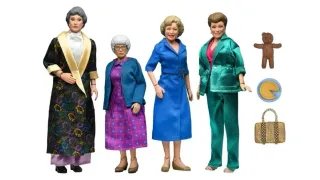November 12, 2016
In Historic Vote, CA OKs Pot
Sari Staver READ TIME: 4 MIN.
Proposition 64 blazed to victory November 8, with 55.8 percent of California voters in favor of legalizing the recreational use of marijuana, according to unofficial results.
Beginning immediately, adult Californians will be able to possess and smoke up to an ounce of weed and grow six plants, although your garden must not be in public view. Smoking in public is still illegal, except in locations licensed for public consumption, such as dispensaries with smoking sections.
The proposition, known as the Adult Use of Marijuana Act, will also enable adults to purchase cannabis in licensed dispensaries after January 1, 2018, the state deadline to enact regulations for selling pot.
Until then, only those residents with approval from a physician to use medical marijuana can buy cannabis legally. But medical approval is largely a formality, as any adult with online access and a credit card can purchase a recommendation online for $40 or less in a transaction that takes just a few minutes.
While the regulations under Proposition 215, the law that legalized medical cannabis in 1996 will remain intact, Prop 64 includes a little known provision that will exempt medical patients from paying the sales taxes they've been paying all along. Ultimately, medical patients will have to pay a 15 percent excise tax for cannabis products under Proposition 64, but that tax wouldn't kick in until January 1, 2018.
To obtain an exemption, however, medical patients will have to obtain a new medical identification card from the state. The cards cost $100 and require proof of a medical condition. Further information on obtaining such cards in San Francisco is available at: https://www.sfdph.org/dph/comupg/oservices/medSvs/MCID/default.asp.
David Goldman, a gay man who is president of the Brownie Mary Democratic Club, urged medical patients to "do the math" to see if the $100 additional expense of a state card makes sense economically for them.
"If you spend more than $100 on cannabis in a month, you will probably do better if you get the state card," said Goldman.
The sales tax exemption "is really the only thing that changes today" for dispensaries, said Erich Pearson, the 39-year-old co-founder of the San Francisco Patient and Resource Center, or SPARC, the city's largest dispensary. Pearson, who is gay, said that SPARC's point of sale system has already been adjusted to enable patients with state cards to receive the discount, which in most dispensaries is built into the price of the product.
At a crowded victory party for cannabis industry workers held at SPARC on election night, Pearson, a member of the state cannabis legalization task force, was clearly distracted by other election news as partygoers briefly cheered the announcement that Prop 64 had passed.
"Honestly, I'd trade our victory on 64 for a win for Hillary," he said as he sat by himself checking news on his phone and on the big screen TVs that Republican Donald Trump won the presidential race.
"We expected to win on 64," he added. "I would've been extremely surprised had it failed."
A similar legalization measure six years ago was not successful.
Other advocates chimed in.
"This represents a monumental victory for the marijuana reform movement," Ethan Nadelmann, executive director of the Drug Policy Alliance, said in a statement. "With California's leadership now, the end of marijuana prohibition nationally, and even internationally, is fast approaching."
Opponents Disappointed
Opponents of legalization said they were disappointed by the outcomes.
"We were outspent greatly in both California and Massachusetts, so this loss is disappointing, but not wholly unexpected," Kevin Sabet of the anti-legalization group Smart Approaches to Marijuana said in a statement. "Despite having gained considerable ground in the last few weeks, the out-of-state interests determined to make money off of legalization put in too much money to overcome."
California was joined in victory by two other states that approved recreational pot, Massachusetts and Nevada. A similar proposal in Maine was too close to call at press time and one in Arizona was rejected. Four states also approved the use of medical marijuana: Florida, North Dakota, Arkansas, and Montana.
"We can now say once and for all that we have won the war to end the war on marijuana in California," said Jason Kinney, spokesman for the Yes on 64 campaign. "No longer will otherwise law-abiding adults be criminalized for responsible adult use of marijuana. It's a historic achievement that we believe will be a catalyst for change across the country. At a time of national uncertainty, California, led by the courage and conviction of Lieutenant Governor Gavin Newsom, came together to demand social justice for one another - and that's needed now more than ever."
Newsom was a strong backer of the measure, and worked with advocates to craft an initiative that would be successful.
Going into Tuesday's election, a total of 25 states and the District of Columbia had already legalized medical marijuana, while recreational pot is already legal in four states - Alaska, Colorado, Oregon, and Washington - as well as the District of Columbia.
In California, counties varied in their enthusiasm for the proposal. Not surprisingly, San Francisco led the pack of big cities in its approval of the measure, with 194,827 in favor and 69,675 opposed. Approval wasn't nearly as strong in other large counties, with closer tallies in Los Angeles (1,263,634 to 906,152) Orange (407,292 to 392,305) and Santa Clara (231,502 to 168,361). The measure failed in more than 20 counties, including Fresno, Kern, Stanislaus, and Placer.
Much like laws regulating alcohol, it is still illegal for Californians to drive under the influence of marijuana. Users may also not smoke in public places or wherever smoking tobacco is illegal. In addition, they cannot possess it on school grounds, daycare centers, or youth centers where children are present.






